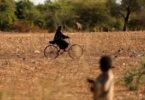F.P. Report
WASHINGTON: The U.S. Department of the Treasury’s Office of Foreign Assets Control (OFAC) designated Malaysian national Teo Boon Ching, the Teo Boon Ching Wildlife Trafficking Transnational Criminal Organization (TCO), and the Malaysian company Sunrise Greenland Sdn. Bhd. for the cruel trafficking of endangered and threatened wildlife and the products of brutal poaching. Teo Boon Ching specializes in the transportation of rhino horn, ivory, and pangolins from Africa, generally utilizing routes through Malaysia and Laos and onward to consumers in Vietnam and China.
“Wildlife trafficking groups are cruel and inhumane, and they also perpetuate corruption and illicit finance,” said Under Secretary of the Treasury for Terrorism and Financial Intelligence Brian E. Nelson. “The United States considers wildlife trafficking to be not only a critical conservation concern, but also a threat to global security.”
Today’s action is the result of a collaboration between the U.S. Department of the Treasury, the U.S. Fish and Wildlife Service, and the U.S. Department of State. The United States appreciates the assistance of the Royal Thai Government in this case.
INTERNATIONAL WILDLIFE TRAFFICKING
Despite the fact that the international trade in rhino horn has been highly regulated and largely banned for decades, horns and items carved from those horns remain highly valued commodities in certain countries.
As a result of widespread poaching between 1970 and 1992, an estimated 96 percent of black rhinos, one of two types of African rhino species, were lost to poaching. Today, there are only approximately 5,000 black rhinos remaining in the wild.
International agreements, such as the Convention on International Trade in Endangered Species of Wild Fauna and Flora (CITES), exist to ensure the trade in wild animals does not threaten their survival. Black rhinos, African elephants found in certain African countries, and some species of pangolins are currently listed by CITES as threatened with extinction, its most severe category. Trade in such species is only permitted in exceptional circumstances.






